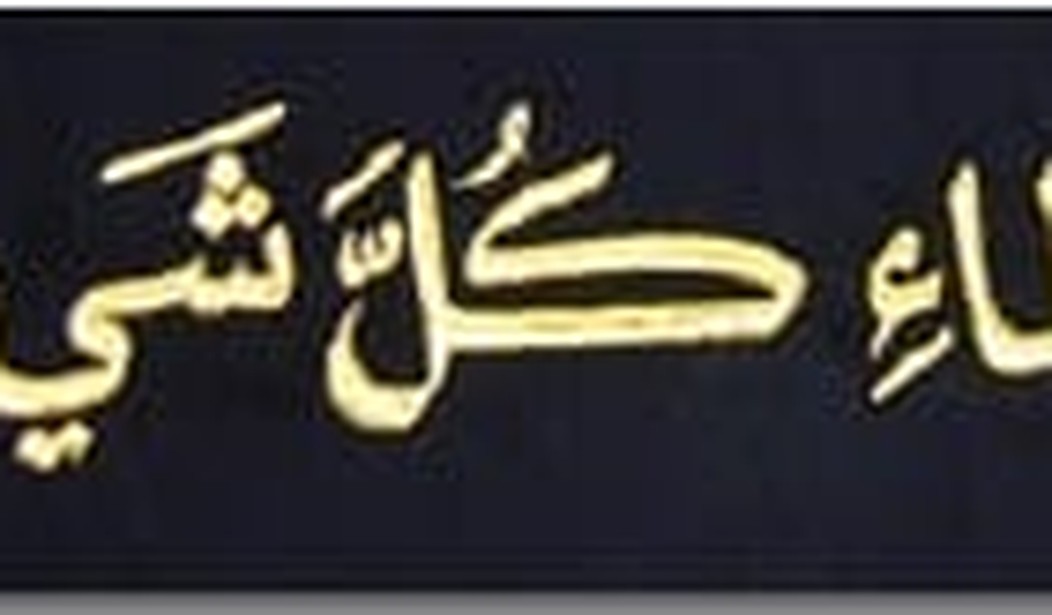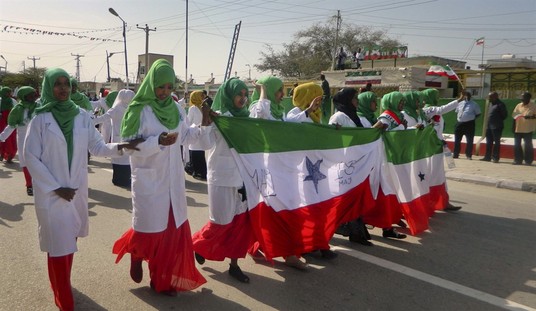Dear friend:
I will address you as a friend even though all I know of you is from your letters. I trust in calling you a friend we will set between us a relationship of some mutual respect.
I find your letters smoking with anger. I understand why you are angry, and there is much to be angry about. But anger clouds reason, impedes the understanding, and makes our response to evil often ineffectual, even counter-productive. Even righteous-anger must be tempered with reason for justice to be done, and for good to triumph over evil.
You need to pause and drain your heart of anger that it might begin to feel and hear the sublime music around you, for it is through the heart that we hear that music that is heavenly and transcendent. And if you want to behold Him, as the psalmist in the Bible pines to “behold the beauty of the Lord,” you must wipe the stain of anger from your eyes.
Our history is of our making. The monuments to our triumphs and ruins are statements about ourselves; testaments to how we have conducted our affairs between our arrival and departure from this world. The best we inherit is the gift of freedom by which we endear ourselves to each other; and the worst we confront is the struggle with freedom’s enemy.
The jihadi Muslims are one such enemy of freedom, and since there can be no peace with them as they preach and practice violence, they must, as were other enemies of freedom, be eliminated. The conflict between freedom and tyranny is but another name for the eternal struggle between good and evil, between belief and unbelief. In this conflict the God of Abraham is not an entirely neutral and distant on-looker. Far from it. He is an active participant in the ranks of those who fight for freedom.
The reason is simple. There can be no belief without freedom, and tyranny is unbelief or belief in false deities whether these are graven images or ideologies at war with freedom.
The Koran declares, “No compulsion is there in religion.” Any public demonstration of religion brought about by coercion is merely another form of idol-worship. Faith is not faith unless it is freely found and not compelled. This is the paradox that confounds those who desire peace and yet deny God. Securing freedom requires the preparedness and willingness to fight those who are enemies of freedom. How else will freedom be won and tyrants defeated?
Tyrants and those who serve tyranny are infidels or unbelievers, and fighting them when they seek to spread their tyranny is a righteous effort sanctioned by the Koran. Whether misguided or innately evil, the jihadi Muslims, by conflating politics and faith to deny others the right to choose for themselves how to live, are tyrants and hence unbelievers.
The Koran, as with the Bible or any sacred text, can be cited by the devil for his purpose. Discernment is needed to distinguish between the devil in disguise and the genuine seeker after truth prepared to fight in defending his freedom. The test between truth and falsehood is to be discerned in the conduct of individuals. As the Bible counsels “by their fruits you shall know them.”
You question, however, the nature of the Koran and you deride the fundamental belief of Muslims that the Koran is truly God’s Words as revealed to Muhammad as God’s messenger. You are not alone in this questioning and derision of Muslim belief following the horrific events of September 11, 2001. I am neither surprised nor angered. The Holocaust brought many Jews to question the very existence of God; that if He exists how could He be seen as good if He allowed such horror to be visited upon them?
The Koran was revealed in time and space. This revelation of God’s Words shaped the destiny of a single human being, Muhammad, and made him an instrument of God’s plan for a portion of mankind. Then the Revelation to Muhammad, after his death, is redacted into a text that became the basis of an empire and civilization in the name of Islam.
The Koran and the history that unfolds after its Revelation have become inextricably bound together. Today it is an immense difficulty to imagine the Koran outside of and apart from this history and to read it afresh. It is the same difficulty as reading the Bible without reference to the history of the respective peoples involved in shaping their lives and the environment around them.
And yet that tireless effort is constantly required if the pristine message of the Koran is to be heard. The Koran is to Muslims what Jesus is to Christians. The Koran is divine in its origin, and it exists outside of time and space though it descends into the material world of human beings with the resulting consequence of being variously understood and exalted, or misused and abused.
The common mistake made by non-Muslims, and many Muslims as well, is to draw a comparison between Jesus and Muhammad. Setting aside, and not disputing, Christian belief about Jesus being divine (for this is a matter of belief as is Muslim belief about the Koran being God’s Words), Muslim belief in Jesus – of his special status by the nature of his birth and by the powers he possessed as divine favour – is informed by the Koran. Muhammad, unlike Jesus, is a mortal as the Koran insists, and like any other mortal will be accountable for his deeds on the Day of Reckoning.
Jesus is not bound by history, and his presence to Christians is immediate and redemptive. Similarly, the Koran is not bound nor limited by history, and God’s Words reach us in the here and now if we are receptive to them.
It is odd for anyone to insist that the Koran must be read and understood within the framework of reading provided by those who came after Muhammad in the early centuries of Muslim history. This insistence freezes the meaning of the Koran for the living generation of Muslims and those as yet unborn. It imprisons the Koran within a the reading made by the dead generations of Muslims, it denies the very possibility of reform.
Such insistence runs counter to what is asserted in the Koran, that its meaning is inexhaustible; that the past is but a lesson and not a foreclosure on the future. The Koran was not revealed for the raising of an empire as occurred in the years following the demise of Muhammad, the prophet of Islam, nor was its meaning emptied when that empire withered and fell.

What is the central message of the Koran? It is to re-awaken man (speaking generically, not exclusively in gender terms) to recognize the One Reality, God – Eternal, Incomparable, Self-Sustaining – as the Source of all of creation. This recognition and its acknowledgement is the primary covenant between God and man. From this constant covenant comes man’s responsibility to take his freedom signified by the spirit God breathed into him as life neither lightly nor in vain. Those among us who trample upon and seek to abridge this freedom are the ones at war with God’s spirit. They are the ones who need to be fought and defeated.
This core message of the Koran is neither exclusive for Arabs among whom Muhammad was born, nor has it been denied to others at different times and different places. This message is like the eternal life-giving water, and as water – it being the universal metaphor for life and living – it takes the shape of vessels into which it is poured.
The jihadi Muslims are people belonging to the fraternity of bigots who quarrel over the shape of the vessels carrying water. Believers quench their thirst with water heedless of the vessel from which it gets poured.
If the irony does not escape you then you will recognize how in abusing the living faith of a people, in those who take the Koran as God’s Words, you have placed yourself in the company of jihadi Muslims whom you detest. In that company you continue the quarrel with over the shape of vessels while the water within eludes you and your thirst is not quenched. If you would instead choose to drink water freely from any vessel that is pleasing to you, without denying others the same right, I would remain committed to protecting our shared freedom. And I would protect it as best I could as both your friend and a believer in God’s Words revealed as the Koran.
Respectfully,
Salim Mansur

“From water God made every living thing.”
-Surah Number 21 Ayah Number 30, Koran
The first letter of “The Cool Water of the Koran” is HERE.
Salim Mansur is a professor of political science at the University of Western Ontario and a syndicated columnist in Canada and the United Kingdom. A Muslim native to Calcutta, India, and a noted Islamic scholar, Prof. Mansur has written extensively on Islamic extremism and the challenges facing contemporary Islam.









Join the conversation as a VIP Member